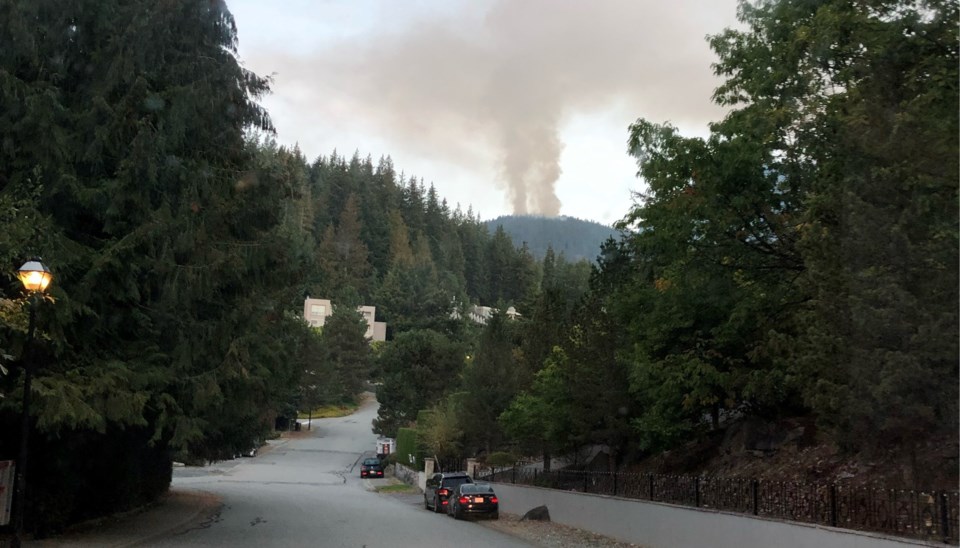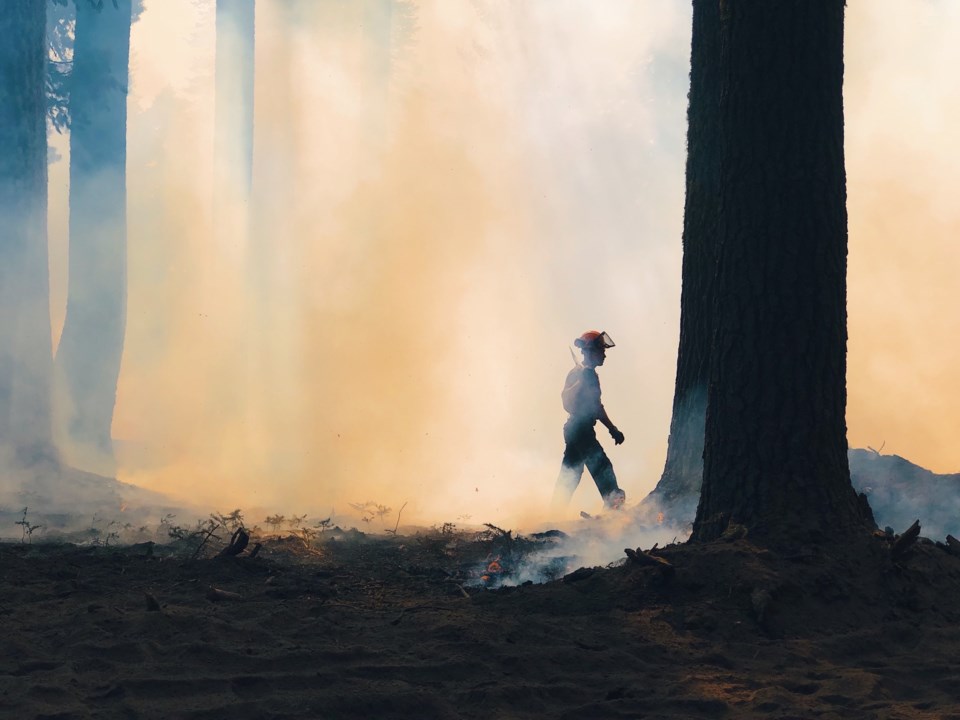Metro Â鶹´«Ã½Ó³»has extended its air quality warning across the region as high concentrations of fine particulate matter blow in from nearby wildfires.
The advisory, first triggered in British Columbia's eastern Fraser Valley Thursday afternoon, now covers the Central Fraser Valley and all of Metro Vancouver.
A spokesperson for Metro Â鶹´«Ã½Ó³»said much of the smoke has drifted in from wildfires burning near Chilliwack Lake, Hope, Harrison Lake and across the border in Washington.
On Friday morning, firefighting crews and three helicopters began attacking a near Eagle Lake.
“Smoke from the Eagle Ridge wildfire on Cypress Mountain in West Vancouver is contributing to hazy conditions already being experienced in Metro Â鶹´«Ã½Ó³»due to smoke from wildfires in B.C. and Washington,” wrote a spokesperson for Metro Â鶹´«Ã½Ó³»in a press release Friday afternoon.
“Stagnant weather conditions are forecast to persist for at least the next few days and it is expected that air quality may not change until there is a more significant change in the weather.”

remains high to extreme for much of the South Coast and Â鶹´«Ã½Ó³»Island, with 200 burning across the province, according to the BC Wildfire Service.
On Thursday, high concentrations of fine particulate matter had boosted the the eastern Fraser Valley’s air quality health index () to 10+, the top end of the scale. The health index has dropped to level five in the Fraser Valley and level four for much of Metro Vancouver.
Those concentrations present a moderate health risk. authorities recommend children, seniors and people with pre-existing medical conditions consider reducing or rescheduling strenuous activities outdoors.
For others, the AQHI indicates there’s “no need to modify your usual outdoor activities unless you experience symptoms such as coughing and throat irritation.”
Hot, dry weather to continue
The hot drought conditions dominating much of coastal B.C. in recent months are expected to continue for another week or two, according to Environment Canada meteorologist Alyssa Charbonneau.
“We're kind of just in a prolonged summer,” Charbonneau told Glacier Media Wednesday.
A stubborn high-pressure system responsible for drought conditions across much of southwestern B.C. is set to bring even hotter temperatures to Metro Â鶹´«Ã½Ó³»this weekend.
On Sunday, meteorologists at the Weather Network forecast temperatures will soar beyond 30 degrees Celsius in some parts of the region.
Inland, in Burnaby and Surrey, temperatures are forecast to feel like 30 C, and in Coquitlam, residents will be contending with weather that feels like 32 C.
Closer to the water, in Delta and Richmond, it is expected to feel like 25 and 19 C, respectively.
In Â鶹´«Ã½Ó³»and the North Shore, it’s expected to feel like 29 C.
Environment Canada is not forecasting any rain for the Metro Â鶹´«Ã½Ó³»region through Oct. 20.
How to find clean air
Also known as PM 2.5 because of its 2.5 micrometre or less diameter, fine particulate matter can easily enter homes and buildings.
People with lung disease, respiratory infections, COPD, asthma and diabetes face elevated risk when exposed to the fine particles, but so do pregnant women, children, seniors, outdoor workers and people who are unhoused.
Relief can be found in homes or buildings with HEPA air filters, such as community centres, libraries and malls.
Portable HEPA filters can also be bought and set up to create a .
If health problems due to fine particulate matter escalate — leading to shortness of breath, coughing or chest discomfort — seek medical attention or call 911 if it’s an emergency.



